In today's digitally-driven world, businesses must keep up with the latest trends in digital marketing to stay ahead of the competition. Digital marketing is the practice of promoting products or services through digital channels, such as social media, email, search engines, and websites. It's a vast field that en
compasses various techniques and strategies, including SEO, PPC, content marketing, email marketing, and social media marketing. In this article, we'll provide you with a comprehensive overview of digital marketing basics to the latest trends.
Table of content:
- What is digital Marketing?
- Why is Digital Marketing important for businesses?
- The Benefits of Digital Marketing
- Types of Digital Marketing
- Search Engine Optimization (SEO)
- Pay-Per-Click (PPC) Advertising
- Content Marketing
- Email Marketing
- Social Media Marketing
- Skill required for digital marketing?
- What is Digital Marketing?
Digital marketing refers to any form of marketing that involves the use of digital technologies. It is the practice of promoting products or services through various digital channels such as search engines, social media platforms, email, and mobile apps.
Digital marketing has become an integral part of the modern business landscape. In today's digital age, consumers rely heavily on the internet to search for products and services and make purchasing decisions. Digital marketing enables businesses to reach these consumers where they spend most of their time - online.
- why is digital marketing important for businesses?
- Increased Brand Awareness: Digital marketing can help businesses increase their brand awareness through social media, search engine optimization, and other tactics. By building a strong online presence, businesses can reach more potential customers and establish themselves as industry leaders.
- Greater Audience Reach: With digital marketing, businesses can reach a wider audience than traditional marketing methods. With the internet, businesses can connect with potential customers from all over the world.
- Cost-Effective: Digital marketing can be much more cost-effective than traditional marketing methods. With tactics such as content marketing, businesses can generate organic traffic without paying for ads.
- Targeted Advertising: Digital marketing enables businesses to target their ideal customers more precisely. With the help of data and analytics, businesses can identify their target audience and create content that resonates with them.
- Improved Conversion Rates: Digital marketing can help businesses improve their conversion rates by targeting users who are already interested in their products or services. With tactics such as email marketing and PPC advertising, businesses can direct traffic to landing pages that are optimized for conversions.
- Improved Customer Engagement: Digital marketing allows businesses to engage with their customers more effectively through social media, email marketing, and other tactics. By building relationships with customers, businesses can improve customer loyalty and retention.
- What are Benefits of Digital Marketing?
There are several benefits of digital marketing for businesses of all sizes:
Increased Visibility and Reach
Digital marketing allows businesses to reach a wider audience than traditional marketing methods. With the internet, businesses can reach potential customers from all over the world.
Cost-Effective
Digital marketing can be much more cost-effective than traditional marketing methods. With tactics such as SEO and content marketing, businesses can generate organic traffic without paying for ads.
Targeted Audience
Digital marketing enables businesses to target their ideal customers more precisely. With the help of data and analytics, businesses can identify their target audience and create content that resonates with them.
Increased Conversion Rates
Digital marketing can help businesses improve their conversion rates by targeting users who are already interested in their products or services. With tactics such as PPC advertising, businesses can direct traffic to landing pages that are optimized for conversions.
4.What are theTypes of Digital Marketing?
There are several types of digital marketing channels that businesses can use to reach their target audience:
Search Engine Optimization (SEO)
SEO is the process of optimizing a website to rank higher in search engine results pages (SERPs). It involves various tactics such as keyword research, on-page optimization, link building, and content creation to improve a website's visibility in search engines.
Pay-Per-Click (PPC) Advertising
PPC is a form of advertising where businesses pay for each click on their ads. Advertisers bid on keywords related to their products or services, and their ads are displayed in search engine results pages or on websites that participate in ad networks.
Social Media Marketing
Social media marketing involves using social media platforms to promote products or services. It includes tactics such as creating engaging content, building a following, and running targeted ads.
Content Marketing
Content marketing is the practice of creating and sharing valuable content to attract and retain customers. It includes tactics such as blogging, creating videos, and producing infographics.
Email Marketing
Email marketing involves sending promotional emails to a list of subscribers. It includes tactics such as newsletter campaigns, product updates, and promotional offers.
5.What are the requires skills for digital marketing?
Digital marketing requires a combination of technical and soft skills. Here are some of the key skills needed for a successful career in digital marketing:
Analytics: Digital marketers must have a strong understanding of data and analytics to track the performance of their campaigns and make data-driven decisions.
Search Engine Optimization (SEO): A good understanding of SEO is essential for digital marketers to optimize content for search engines and drive organic traffic to websites.
Media Marketing: Digital marketers must have a good understanding of social media platforms and how to use them to connect with audiences, build relationships, and promote content.
Paid Advertising: A good understanding of paid advertising platforms such as Google Ads, Facebook Ads, and LinkedIn Ads is essential for digital marketers to create effective campaigns.
Design: A basic understanding of design principles and tools is essential for digital marketers to create visually appealing content and assets.
Project Management: Digital marketers must be able to manage multiple campaigns and projects simultaneously, including timelines, budgets, and resources.
Communication: Digital marketers must have excellent communication skills to collaborate effectively with cross-functional teams, clients, and stakeholders
Overall, digital marketing requires a combination of technical and soft skills. Digital marketers must have a good understanding of data and analytics, SEO, social media marketing, content marketing, paid advertising, email marketing, design, project management, and communication to be successful in the field.
Top of Form
 Top 10 AI Tools for Plagiarism-Free Content Writing: Boost Your SEO & Digital Marketing Efforts
Top 10 AI Tools for Plagiarism-Free Content Writing: Boost Your SEO & Digital Marketing Efforts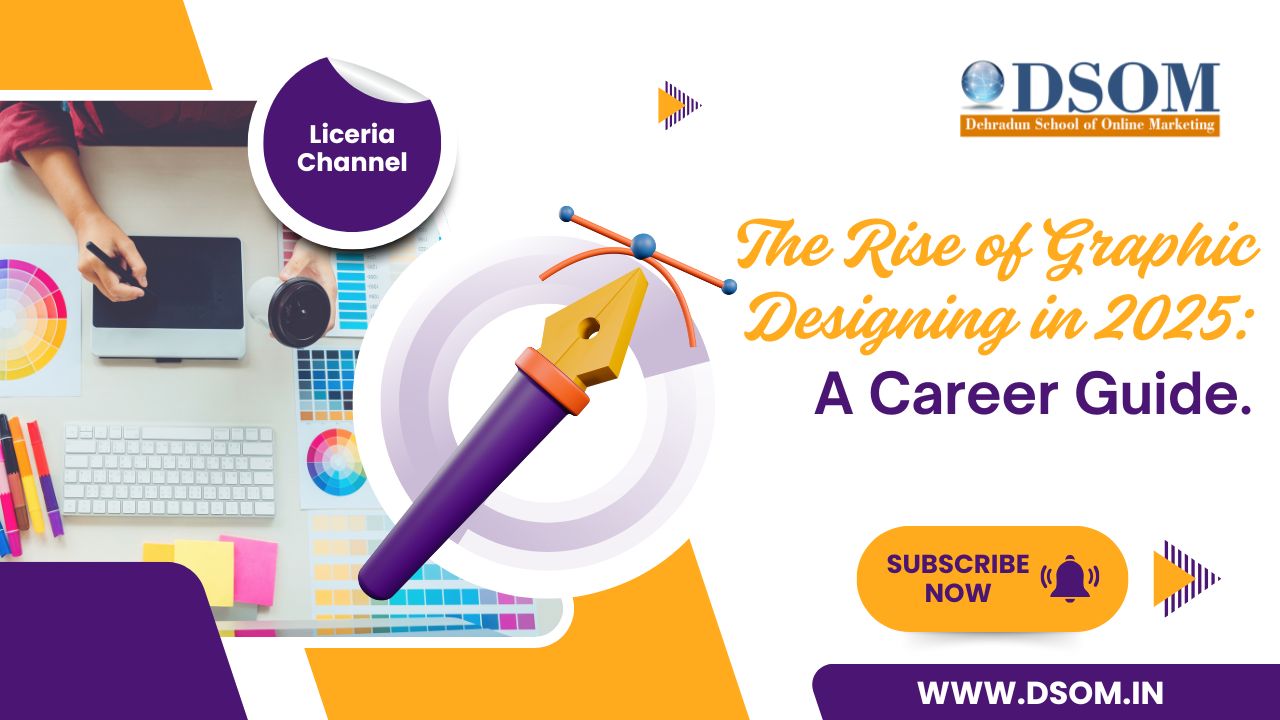 The Rise of Graphic Designing in 2025: A Career Guide.
The Rise of Graphic Designing in 2025: A Career Guide. The Rise of Video Editing: A Crucial Skill in 2025
The Rise of Video Editing: A Crucial Skill in 2025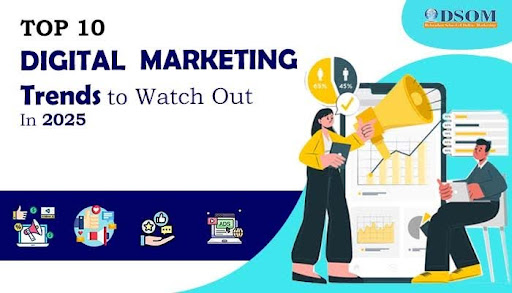 Top 10 Digital Marketing trends in 2025
Top 10 Digital Marketing trends in 2025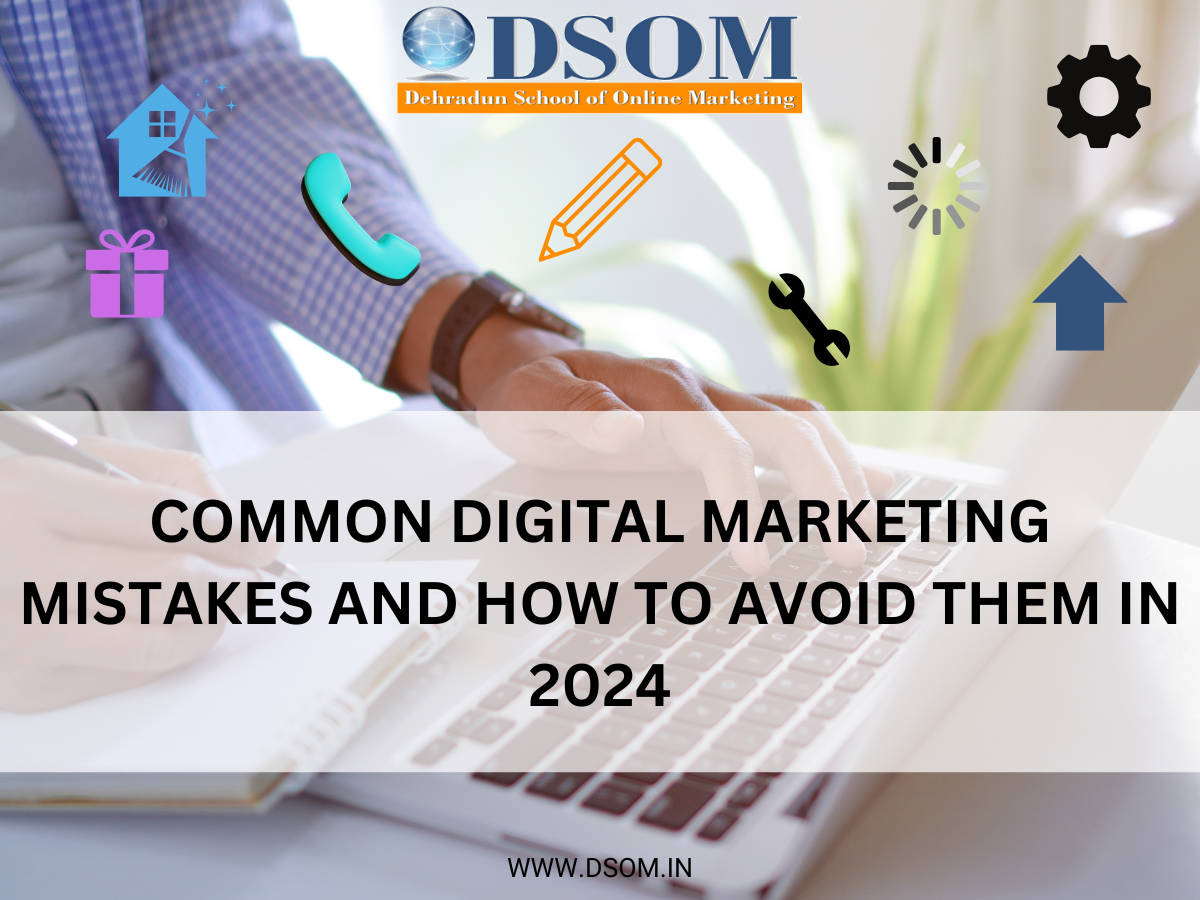 Common Mistakes in Digital Marketing and How to Avoid Them 2025
Common Mistakes in Digital Marketing and How to Avoid Them 2025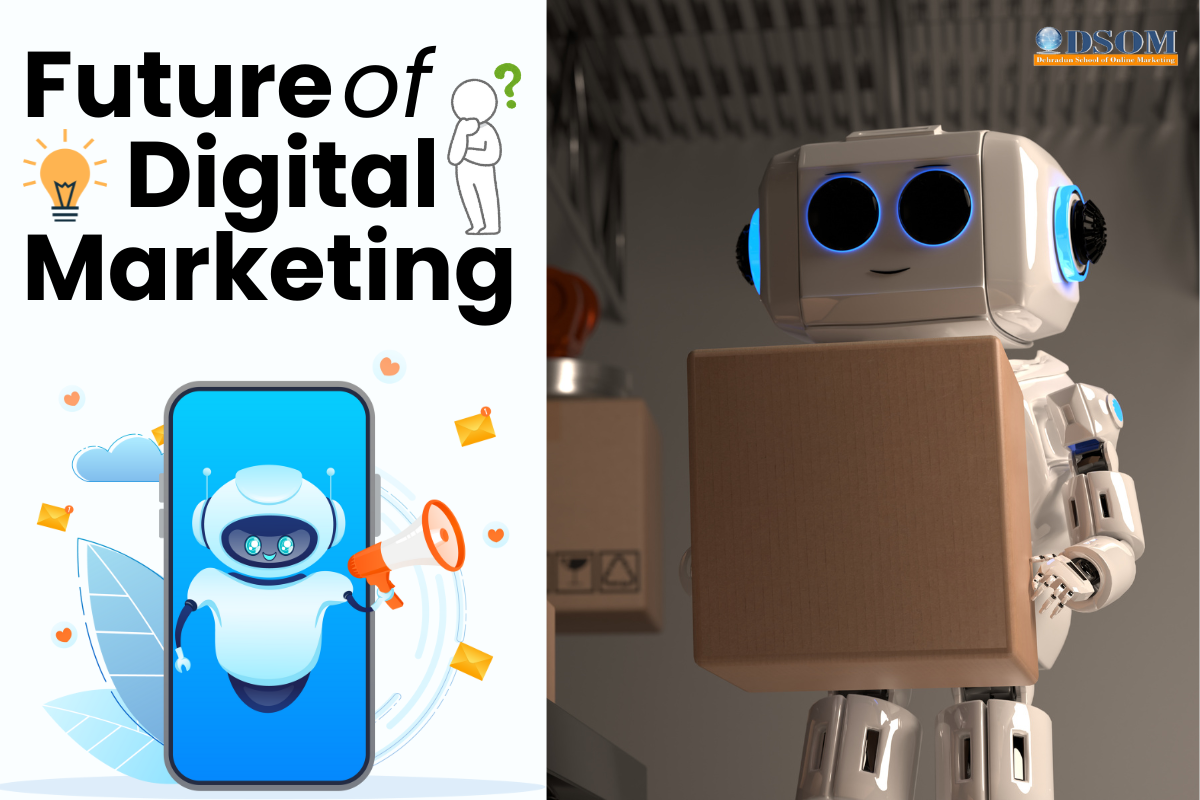 The Future of Digital Advertising: What You Need to Know
The Future of Digital Advertising: What You Need to Know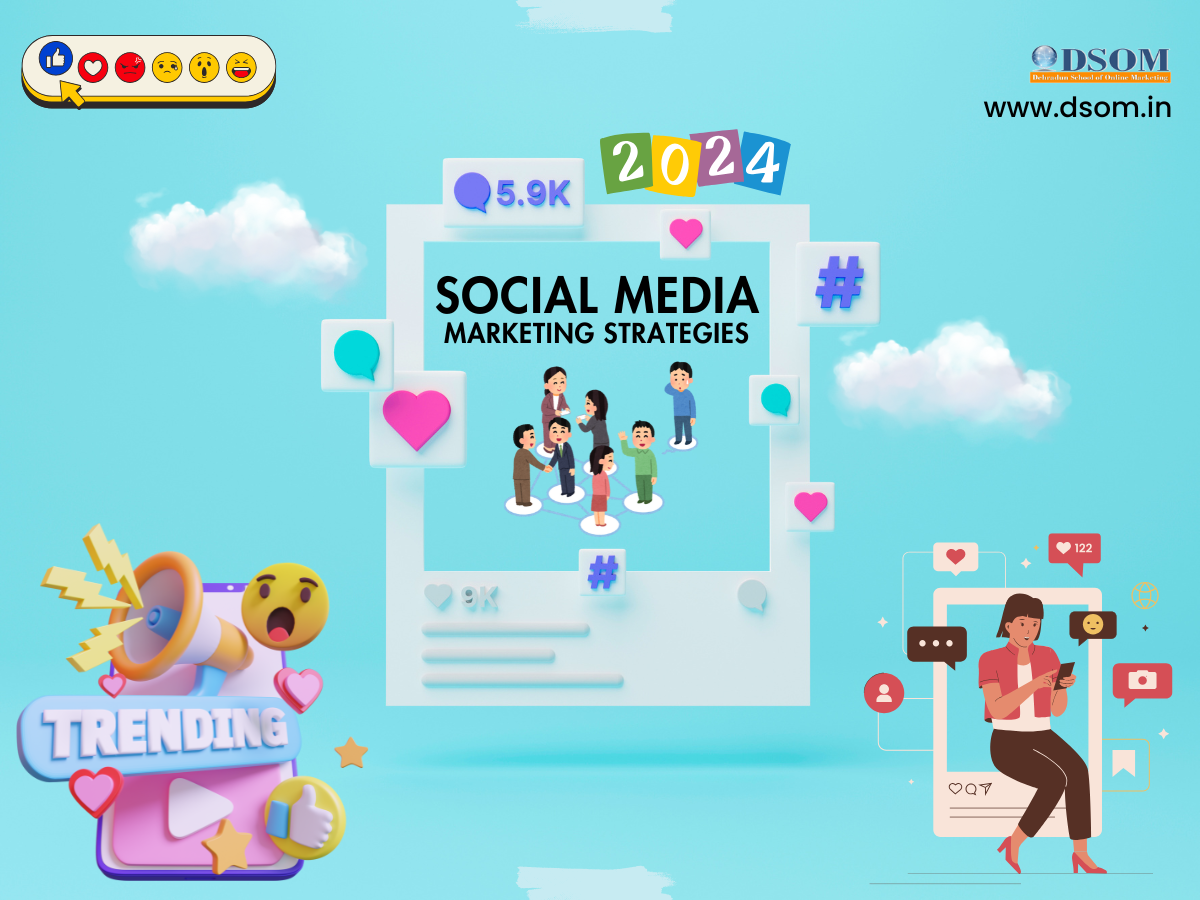 Social Media Marketing in 2024: Strategies for Maximum Engagement
Social Media Marketing in 2024: Strategies for Maximum Engagement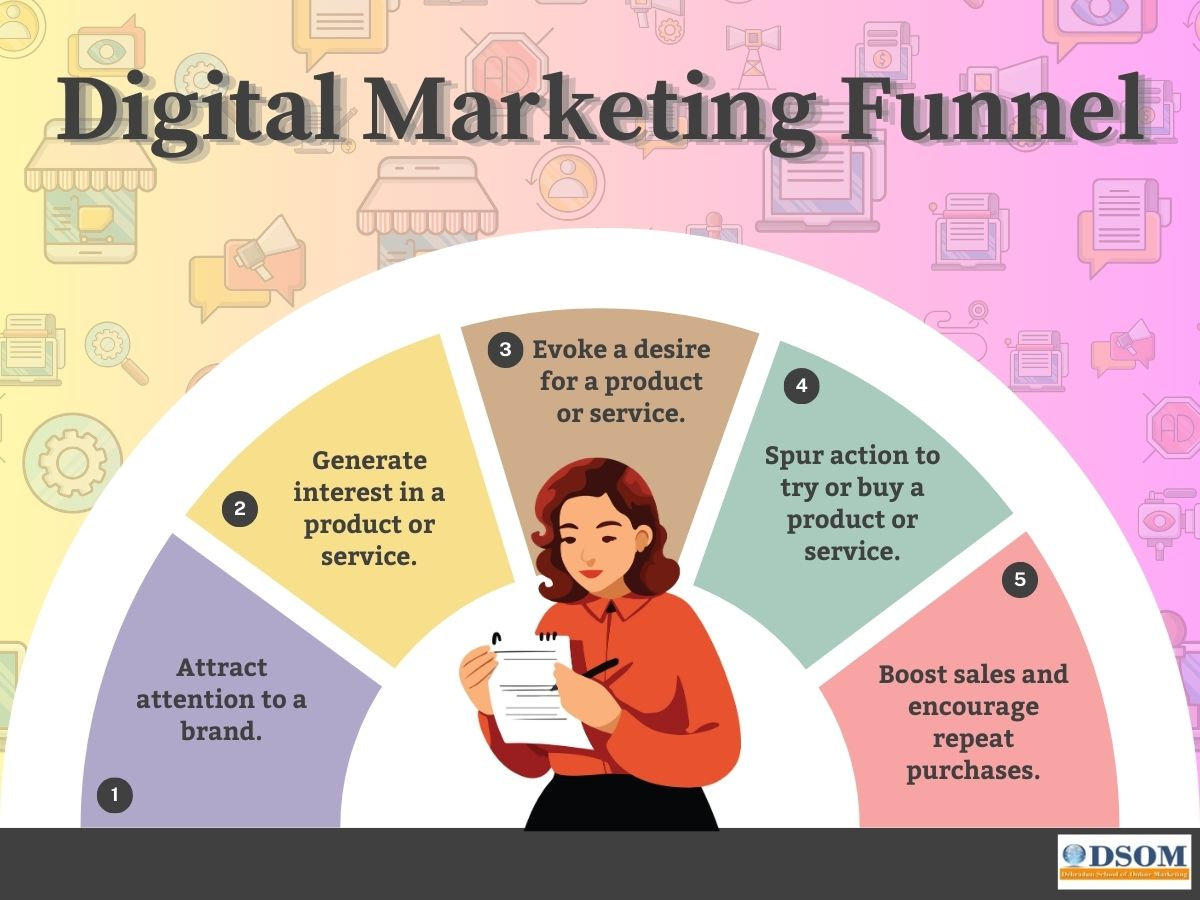 Building a Successful Digital Marketing Funnel: A Step-by-Step Guide
Building a Successful Digital Marketing Funnel: A Step-by-Step Guide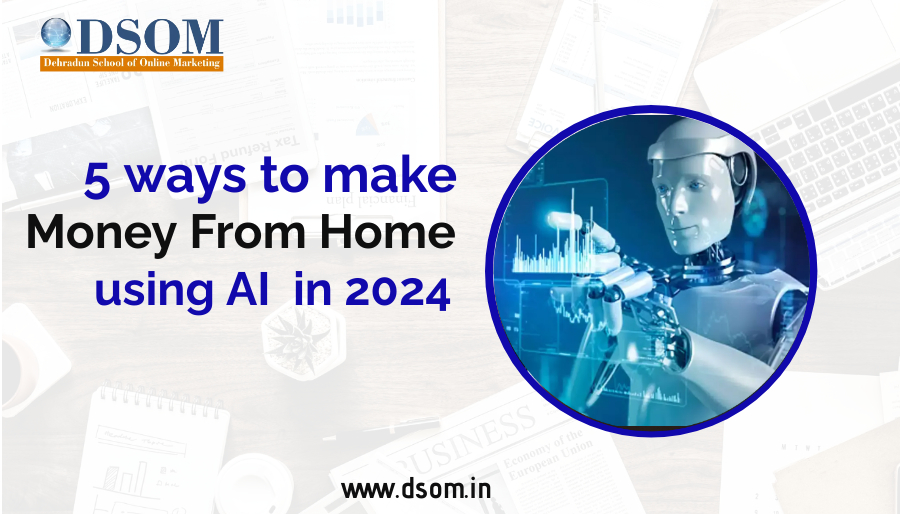 5 ways to make money from home using AI (Artificial-Intelligence) in 2024
5 ways to make money from home using AI (Artificial-Intelligence) in 2024 Career After 12th In Graphic Designing
Career After 12th In Graphic Designing